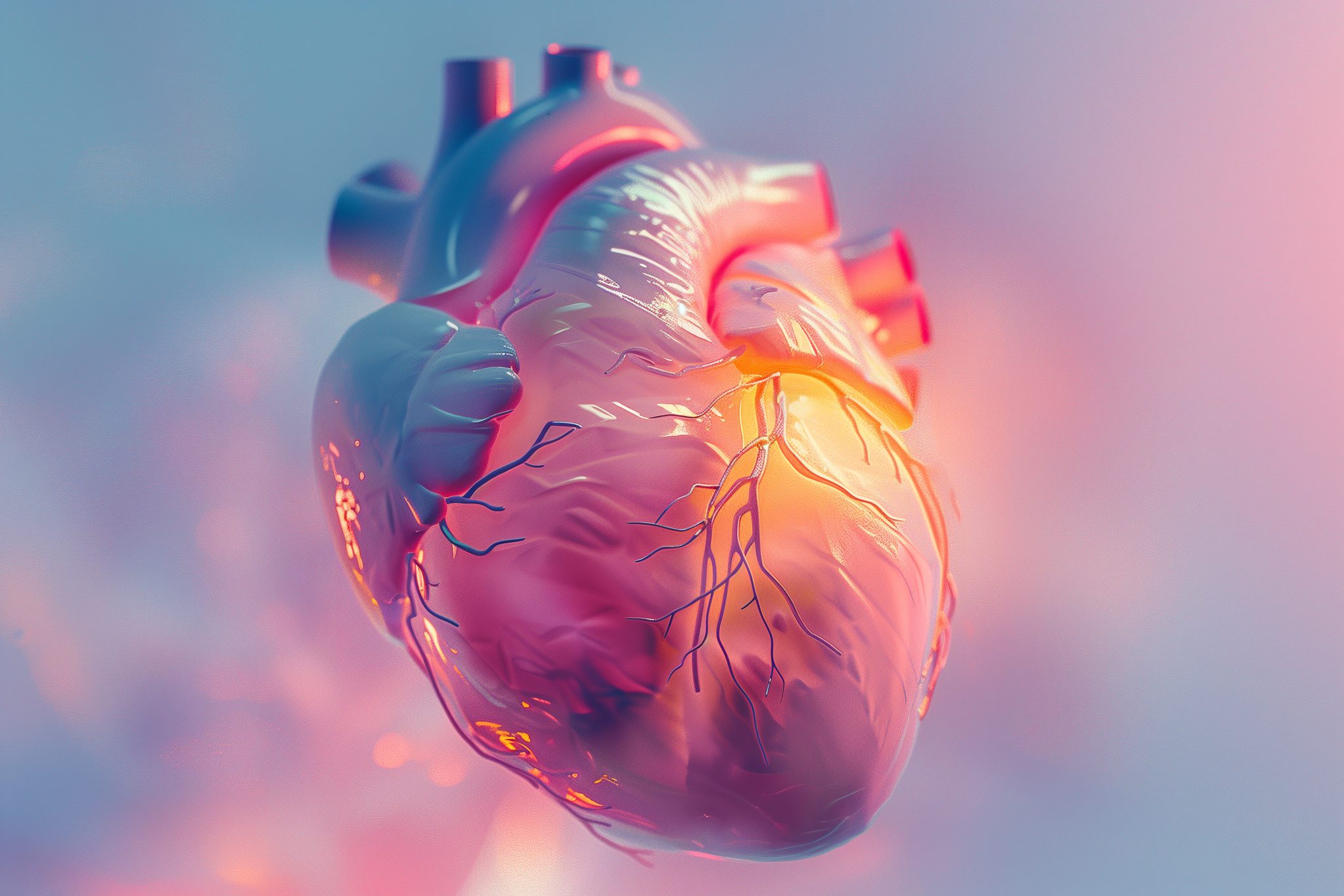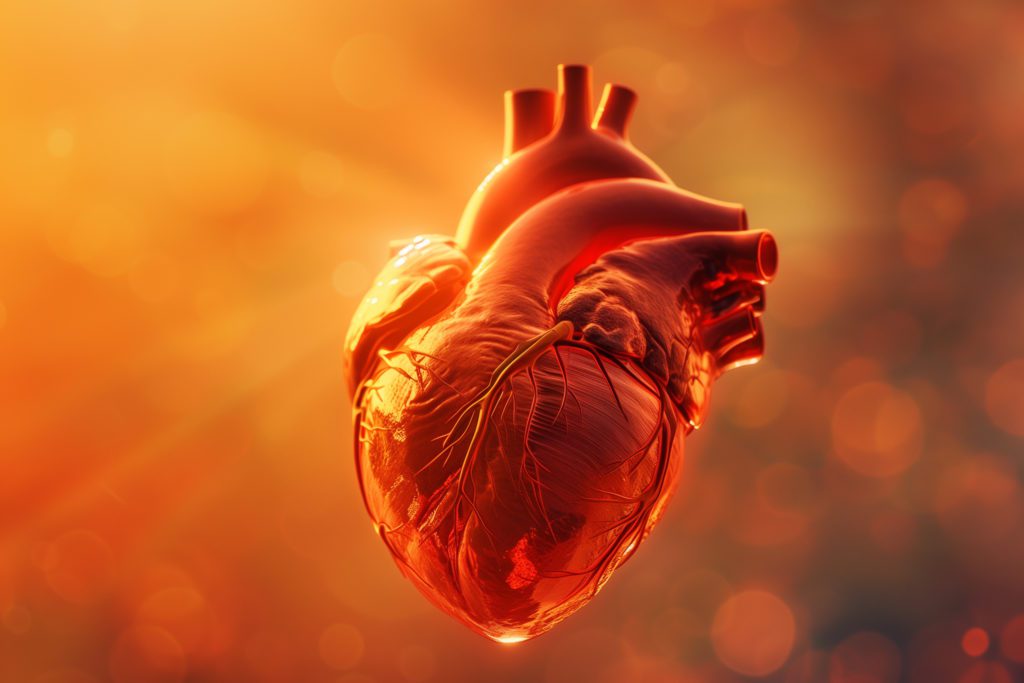
Insomnia and Cardiovascular Disease. Are They Connected?
Learn how insomnia and cardiovascular disease are connected, including how sleep deprivation increases the risk of CVD. Explore tips for fighting insomnia.

Insomnia is never a pleasant way to end your day. As much as you may wish to sleep, having insomnia means that sleep continually manages to evade you, with the hours that you’re still awake ticking by. In addition to leaving you tired come morning, which makes functioning during the day challenging, insomnia can also affect the health of your heart.
In this article, we’ll explore how insomnia is connected to cardiovascular disease and what you can do to sleep easier and protect your heart’s health.
What is Insomnia?
Insomnia is one of the most common sleep disorders, with as many as 1 in 2 adults experiencing short-term insomnia and 10-30% of the population suffering from chronic insomnia. What causes insomnia can differ from person to person, but some common causes include stress, certain medications, and illness.
As for what insomnia is, it’s a lack of sleep, whether because you cannot fall asleep, stay asleep, or get good sleep. This means that even if you sleep all night, you may still have insomnia if the sleep you get is of poor quality.
As expected, after a night of poor sleep, daytime sleepiness is common, but insomnia can also make focusing difficult and cause poor memory. If you have chronic insomnia, you may also have depression and anxiety.
These are the most commonly known risks of insomnia, but a lack of good sleep can also affect your heart.
The Connection Between Insomnia and Cardiovascular Disease
Research suggests that insomnia can increase your risk of cardiovascular disease (CVD), an umbrella term used to reference diseases involving the heart and blood vessels, such as heart disease, heart attack, stroke, arrhythmia, and heart failure. These diseases are the leading cause of death worldwide, but most cases of CVD can be prevented by adopting a healthy lifestyle, such as getting more sleep.
One study found that those with insomnia have a 45% higher risk of developing CVD. Scientists are still working to fully understand the “why,” but they’ve already uncovered some connections between insomnia and CVD:
Insomnia Increases Cortisol Levels
Studies have found that those with insomnia have higher levels of cortisol. This may be because of norepinephrine activity at night, which is a hormone responsible for being awake and attentive. If you’re up all night because you can’t sleep, norepinephrine will be active, which may cause cortisol to increase.
Another study found that not only does insomnia increase cortisol levels, but this increase can stick around for 24 hours. So, if you have insomnia every night, you’ll always have high cortisol levels.
Cortisol, also known as the stress hormone, can increase blood cholesterol, blood pressure, and blood sugar if it remains high long-term, which can occur in chronic insomnia. These variables are all risk factors for CVD, explaining how high cortisol from insomnia can increase the risk of CVD.
Insomnia Increases Inflammation
Sleep deprivation is associated with markers of inflammation that circulate through the bloodstream. In particular, there has been shown to be an increase in C-reactive protein due to sleep deprivation, which is an inflammatory marker that is also high in those who have an increased risk of heart disease and diabetes.
Insomnia Is Associated with Calcium Buildup
One contributor to cardiovascular disease is a buildup of calcium deposits in the coronary arteries, which impedes blood flow. Insomnia is one possible cause of this buildup, likely because insomnia can affect the risk factors of calcium buildup, such as high blood pressure and poor glucose regulation.
Additionally, insomnia may lead to overeating—midnight snack, anyone?—increasing your weight, and a higher weight is also associated with a higher risk of calcium buildup.
Insomnia May Be Accompanied By Sleep Apnea
Insomnia is often accompanied by obstructive sleep apnea, a sleep disorder characterized by stopped breathing during the night. In addition to affecting sleep quality by waking you during the night, sleep apnea also comes with an increased risk of cardiovascular disease, with one study finding that sleep apnea increases the risk of heart failure by 140%, stroke by 60%, and heart disease by 30%.
Insomnia and sleep apnea can both affect each other. Insomnia may predate sleep apnea and cause a reduction of oxygen saturation or an increase in stopped breathing events. Conversely, having sleep apnea can cause many nighttime wakings and may also cause a fear of falling asleep.
Tips for Preventing Insomnia
Those with insomnia benefit most from adopting healthy sleep habits to encourage an easier time falling and staying asleep. These recommendations include:
- Keeping the bedroom dark, cool, and quiet
- Avoiding alcohol and caffeine before bed
- Going to bed and waking up around the same time each day (even on weekends!)
- Exercising during the day
- Avoiding naps too late in the day
- Keeping naps to 30 minutes or less.
If your insomnia is accompanied by periods of loud snoring or stopped breathing during the night, reach out to your doctor about possible sleep apnea. They can order a sleep study to determine if you have sleep apnea and start you on treatment to assist your breathing during the night.
Furthermore, if you’ve tried adopting a good bedtime routine but insomnia is still a problem, reach out to your doctor to help identify any other medical conditions that may be keeping you awake at night.
Don’t Sleep on Getting a Good Night of Sleep
Occasional bouts of insomnia are common, especially if your stress levels are high because of a work project or major life event. However, if you have frequent insomnia, don’t hesitate to take action and preserve your sleep.
Sleep isn’t a luxury—it’s vital for your heart’s health and should be treated as such. Poor sleep can increase your blood pressure, promote inflammation, and increase buildup in the arteries, all of which increase your risk of cardiovascular disease.
To protect the health of this vital muscle, adopt good sleep hygiene to sleep better at night. Pillow has a resource library full of tips to help you sleep, but if you’re still struggling to sleep, reach out to your doctor to see if your insomnia is from another medical condition.
FAQ
How does sleeping position affect heart health?
Some studies suggest that sleeping on the left side may put extra pressure on the heart, especially for those with heart failure, while sleeping on the right side may reduce strain. However, for most healthy individuals, sleep position has minimal impact on cardiovascular health.
How does shift work affect cardiovascular health?
Working night shifts or having an irregular sleep schedule disrupts circadian rhythms, leading to higher risks of high blood pressure, obesity, and heart disease. Shift workers should prioritize consistent sleep patterns and healthy lifestyle choices to minimize cardiovascular risk
Can napping influence cardiovascular health?
Short naps can reduce stress and help compensate for sleep deficits, benefiting heart health. However, long or irregular napping may disrupt nighttime sleep patterns and could be linked to an increased risk of cardiovascular disease.
How does sleep affect cholesterol levels?
Poor sleep quality has been linked to higher cholesterol levels, which increase the risk of heart disease. Ensuring adequate and quality sleep may help maintain healthier cholesterol levels and overall cardiovascular health.
Can sleeping too much be bad for heart health?
Yes, excessive sleep (more than nine hours per night) has been linked to a higher risk of heart disease, stroke, and metabolic disorders. Oversleeping may indicate underlying health issues, such as sleep apnea or depression, which can also impact heart health
Does sleep affect heart rate variability?
Sleep quality influences heart rate variability (HRV), a key measure of autonomic nervous system function. Poor sleep can lower HRV, which is associated with increased cardiovascular risk and reduced ability to handle stress. (pillow.app)
How does REM sleep impact cardiovascular health?
Rapid Eye Movement (REM) sleep plays a crucial role in regulating heart rate and blood pressure. Disruptions during REM sleep can increase the risk of hypertension and cardiovascular disease by affecting autonomic nervous system balance.

Written by
Jessica G.
Medical writer freelancer who has written hundreds of articles on varying topics. Masters of Engineering degree in Biomedical Engineering.
Download Pillow
Get help
Press & News
Legal
Connect
X (Twitter)
Company
Copyright © Neybox Digital Ltd.



